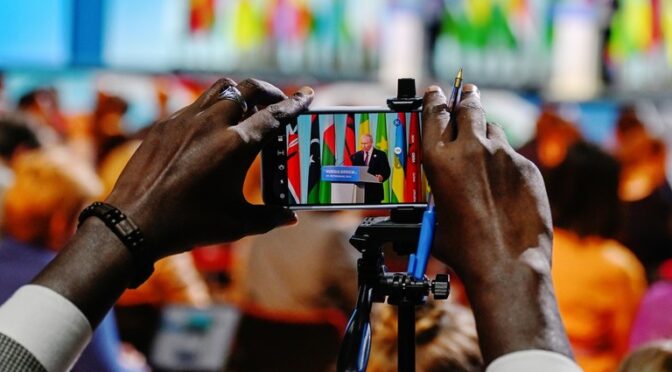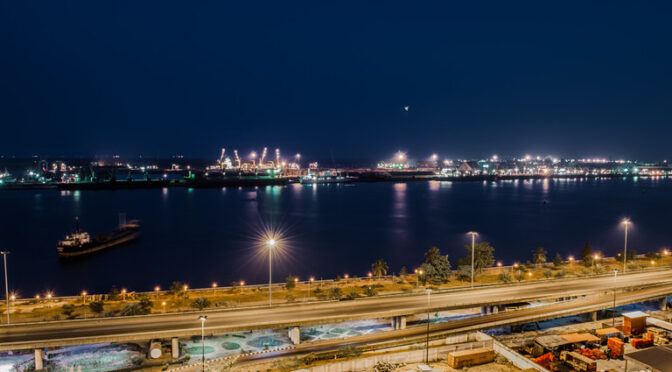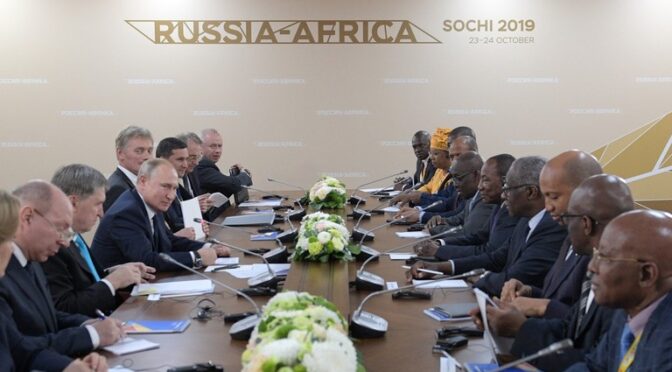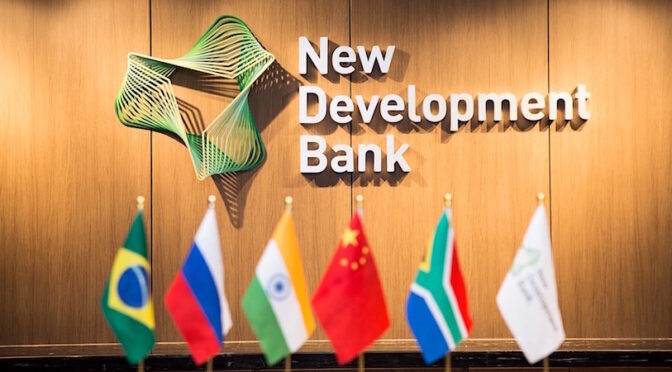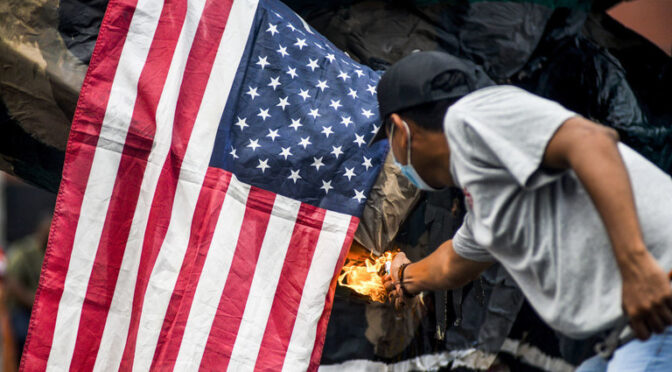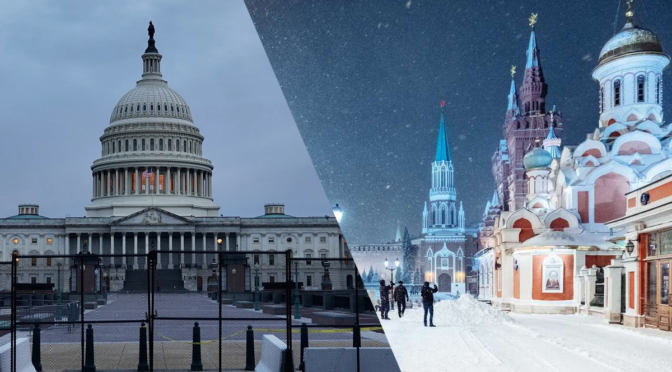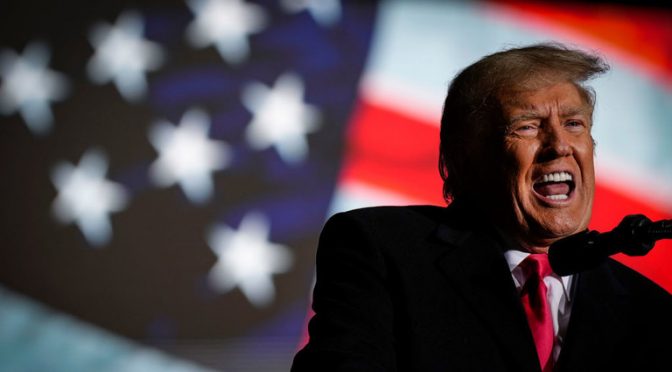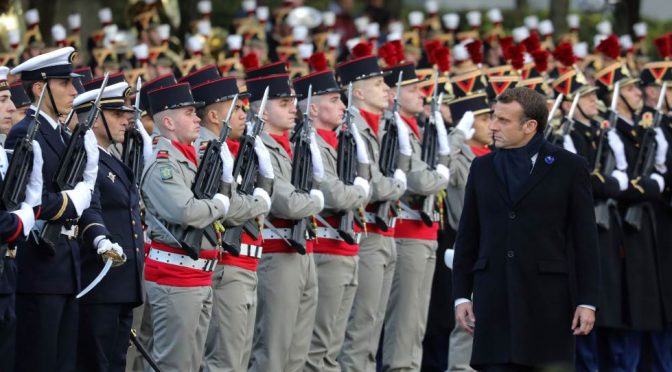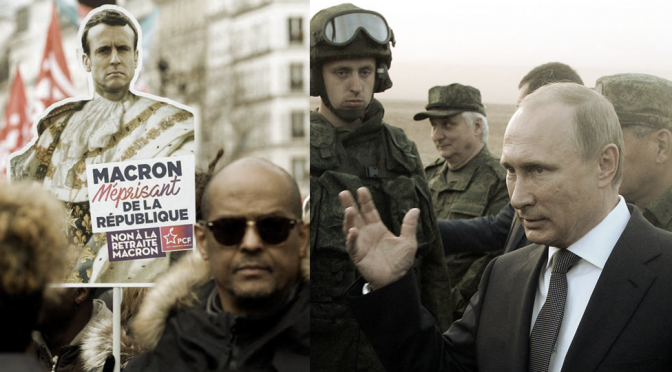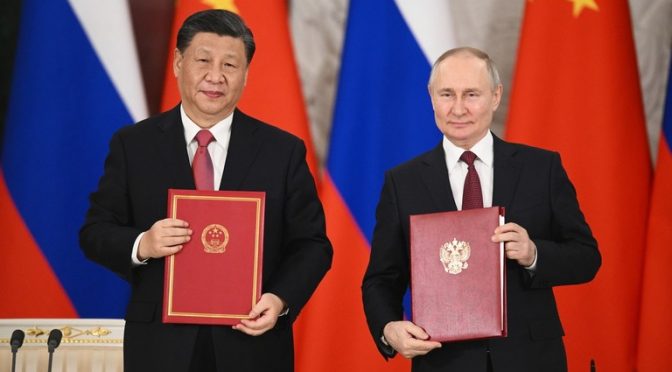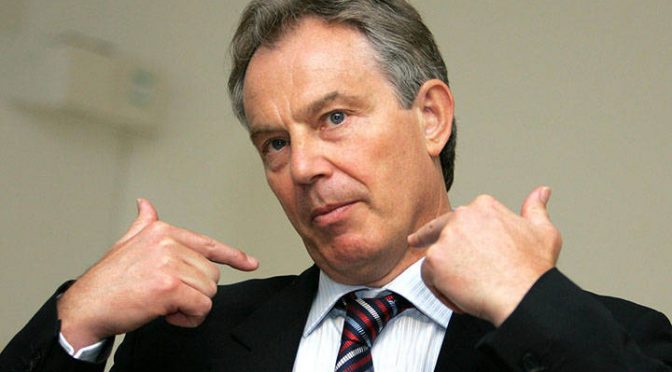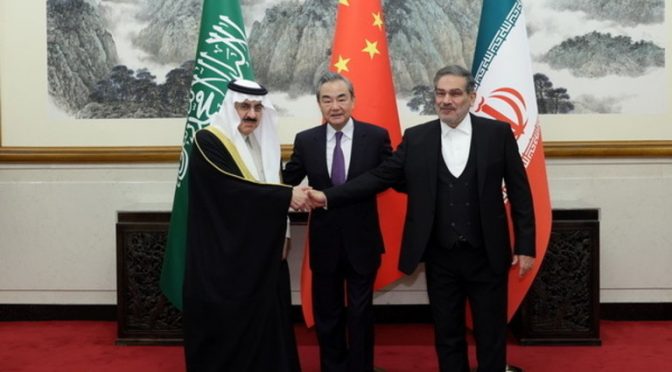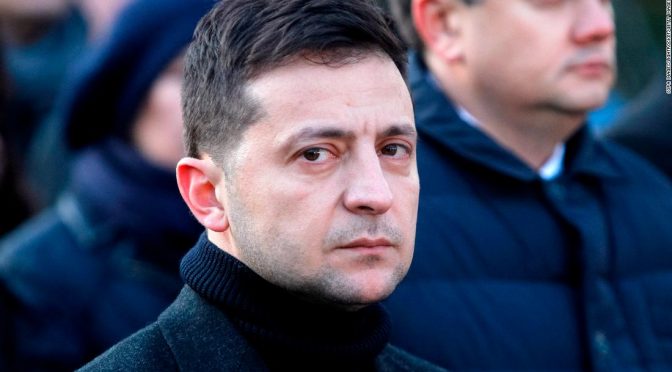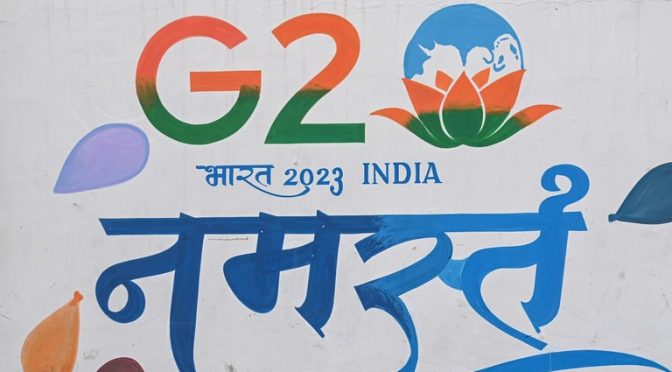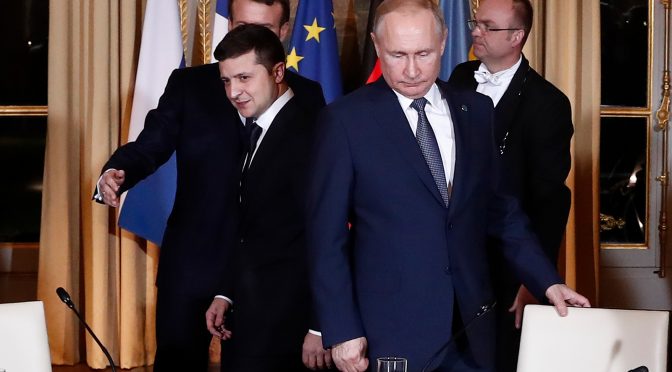The Moscow and Tver Regions are preparing to welcome 3,000 families from South Africa. In a rural area situated roughly halfway between Moscow and St. Petersburg, an “African village” is in the works as part of a five-year pilot program initiated by the African International Congress (AIC) in Russia. This project aims to settle a significant number of migrants from South Africa.
Continue reading Russia is Setting Up An “AfroVillage”Category Archives: Geopolitics
Maidan ‘Midwife’ Victoria Nuland Deployed to Africa
The new military leadership in the country is aware of the potential dangers of engaging the services of the defense contractor, according to Victoria Nuland.
Continue reading Maidan ‘Midwife’ Victoria Nuland Deployed to AfricaEmerging New Political Order: Niger’s Military Coup d’Etat
The latest political situation unfolded in Niger, the unexpected removal of democratically-elected President Mohamed Bazoum late July and the deepening differences in perception across Africa explicitly shows Africa’s level of political illusions and, practical reality towards attaining unity dimension in Africa.
Continue reading Emerging New Political Order: Niger’s Military Coup d’EtatWhy Niger is A New Front in The Modern Cold War
A coup in a poor African nation is not unheard of, but the modern-day geopolitical context gives it global significance.
Continue reading Why Niger is A New Front in The Modern Cold WarAfrica Rising: Niger Bans Uranium and Gold Exports To France
Niger’s military authorities, who took power in a coup last week, have banned uranium and gold exports to France, with immediate effect.
Continue reading Africa Rising: Niger Bans Uranium and Gold Exports To FranceRussia is Making Its Biggest Geopolitical Shift in 300 Years
The choice of St. Petersburg to host last weeks Russia-Africa summit was no accident. It was a symbolic move.
Continue reading Russia is Making Its Biggest Geopolitical Shift in 300 YearsGeopolitical Chessboard Shifts Against US Empire
The geopolitical chessboard is in perpetual shift – and never more than in our current incandescent juncture.
Continue reading Geopolitical Chessboard Shifts Against US EmpireRussia To Assist Nigeria in Revitalizing Its Steel Industry
The largest steel mill in the African nation was constructed through a collaboration with the Soviet Union. Over the years, Russia has remained a reliable ally for Nigeria, and the two countries have developed a strong government-to-government relationship.
Continue reading Russia To Assist Nigeria in Revitalizing Its Steel IndustryBiden Makes the CIA Director Member of His Cabinet
This is very significant because the CIA, considered to be the Puppetmaster, used to be content playing its game from behind the scenes. However, now it’s front and center, which indicates how significant the threat of losing US hegemony really is for the Deep State, especially under a demented administration facing a lot challenges, nowadays.
Continue reading Biden Makes the CIA Director Member of His CabinetWestern Deep State Panics They Might Lose Indo-Pacific
A significant diplomatic effort aimed at countering Beijing’s influence in the Indo-Pacific region is currently in progress, and it is evident from the simultaneous visits of Western leaders to the once-neglected islands in the area.
Continue reading Western Deep State Panics They Might Lose Indo-PacificHere’s what Russia can offer Africa
Moscow has something extremely valuable to offer countries across the continent.
Continue reading Here’s what Russia can offer AfricaPutin: Joining Russia and Africa Efforts for Peace, Progress and a Successful Future
On July 27–28, St Petersburg will host the second Russia-Africa Summit and Russia-Africa Economic and Humanitarian Forum.
Continue reading Putin: Joining Russia and Africa Efforts for Peace, Progress and a Successful FutureNeocons Want War with China
It was a photo op for the ages: a visibly well-disposed President Xi Jinping receiving centenarian “old friend of China” Henry Kissinger in Beijing.
Continue reading Neocons Want War with ChinaIs this Why Biden Has America Involved in the War in Ukraine?
Joe Biden is a criminal and is compromised! And he is leading us into WW3 because Zelenskyy has proof of more Biden crimes.
Continue reading Is this Why Biden Has America Involved in the War in Ukraine?Multipolar Maneuvering in Indo-Pacific
On Monday, while delivering the keynote address at the annual China Business Summit held in Auckland, New Zealand Prime Minister Chris Hipkins weighed in on the power dynamic in the Indo-Pacific.
Continue reading Multipolar Maneuvering in Indo-PacificRussia Confirms BRICS Will Create A Gold-Backed Currency
The news regarding the BRICS (Brazil, Russia, India, China, and South Africa) implementing their plan to create a new international currency has gained momentum. The currency will be backed by gold, as announced on July 7, 2023.
In a recent meeting in Cape Town, South Africa, the foreign ministers of the BRICS countries, along with representatives from more than twelve nations, emphasized their intention to establish an international trading currency.
This undertaking, involving countries representing around 40 percent of the global population and a combined economic output comparable to that of the United States, has the potential for significant consequences.
Additionally, several other countries, such as Saudi Arabia, United Arab Emirates, Egypt, Iran, Algeria, Argentina, and Kazakhstan, have expressed interest in joining the BRICS alliance.
The main objective of the BRICS countries is to decrease their economic and political reliance on the US dollar, challenging the influence of the US dollar on the global stage. They aim to introduce a new international currency for commercial and financial transactions, replacing the US dollar as the standard means of transaction.
The motivation behind this initiative is clear. The US administration has frequently used the US dollar as a “geopolitical weapon” and engaged in what some refer to as “financial warfare.” Through sanctions and cutting off access to the US dollar capital market and international payment systems, the US has exerted control over enemy nations.
These actions have raised concerns in many non-Western countries, highlighting the political risks associated with holding US dollars. As a result, these countries have started restructuring their foreign reserves by reducing US dollar holdings, diversifying into other currencies, and increasing their gold reserves.
According to the search results, the latest data on gold holdings of BRICS member countries is as follows:
- The BRICS countries have a combined gold reserves of 5,452.7 tons as of the first quarter of 2023, with a market value of around 350 billion US dollars.
- China has quadrupled its gold reserves over the past twenty years, and Russia announced in March 2022 that they were linking the ruble to gold at five thousand rubles per gram and requiring payment for their exports in rubles.
- Several sources suggest that the BRICS countries are exploring the possibility of a gold-backed currency, with a more specific framework potentially being announced during the BRICS summit in South Africa.
- In addition, there have been reports of the BRICS countries mulling the formation of a single gold trade system.
- While the BRICS countries are the second largest owner of gold reserves after the US, it’s unclear whether they have increased their gold holdings in recent years or if there have been any significant changes in their gold reserves.
While specific details about the structure of the new BRICS currency are not yet available, it is worth speculating on potential scenarios. One possibility is the establishment of a new bank, the “BRICS Bank,” funded by gold deposits from central banks within the BRICS alliance. The physical gold holdings would be recorded as assets on the balance sheet of the BRICS Bank and could be denominated as “BRICS gold,” with each unit representing one gram of physical gold.
The BRICS Bank could then provide loans denominated in BRICS gold to exporters and importers. These loans would be funded through credit contracts with holders of BRICS gold, who would transfer their deposits to the BRICS Bank for a designated period in exchange for interest. The BRICS Bank could also accept additional gold deposits from international investors, allowing them to hold interest-bearing BRICS gold deposits.
BRICS gold could potentially serve as international money, an internationally recognized unit of account in global trade and financial transactions. This new de facto gold currency could exist solely as an accounting unit and be redeemable on demand, without the need for physical minting.
However, the successful transition to using BRICS gold as an international trade and transaction currency would likely have significant consequences:
- The demand for gold would likely increase sharply, impacting gold prices not only in US dollars and euros but also in the currencies of the BRICS countries.
- The surge in gold prices would devalue the purchasing power of official currencies, including the US dollar and the BRICS currencies. Prices of goods denominated in these currencies would likely skyrocket, leading to a depreciation of all existing fiat currencies.
- The BRICS countries would accumulate gold reserves, particularly if they maintain trade surpluses. They would be the primary beneficiaries of this currency shift, while countries with trade deficits, particularly the US, would face losses.
The aforementioned points demonstrate the potential disruptive nature of the proposal to create a new international trading currency backed by gold.
The actions taken by the BRICS countries could have a profound impact on the global economic and financial framework, resembling a landslide in terms of changes.
It remains intriguing to observe the approach that the BRICS nations will adopt during their meeting in Johannesburg, South Africa, scheduled for August 22-24.
Finance, Power, Integration: The SCO Welcomes A New ‘Global Globe’
Discussions at the recent SCO Summit in New Delhi now point to the inevitable: The merging of new multipolar organizations and their collective reorganization of global finance.
Continue reading Finance, Power, Integration: The SCO Welcomes A New ‘Global Globe’Iran Becomes the 9th Member of Shanghai Cooperation Organization
The addition of Iran as the ninth full member of the Shanghai Cooperation Organization (SCO), an influential security and trade alliance, has been welcomed by Russian President Vladimir Putin, Chinese President Xi Jinping, and Indian Prime Minister Narendra Modi.
Continue reading Iran Becomes the 9th Member of Shanghai Cooperation OrganizationChina’s Bold Move: Unveiling the Game-Changing Foreign Relations Law that Defies Hegemony
The legislation recently approved in Beijing aims to restore the principles of equality and fairness among all nations, bringing back a system governed by the rule of law.
Continue reading China’s Bold Move: Unveiling the Game-Changing Foreign Relations Law that Defies HegemonyA Matryoshka of Psyops
The secret of a perfect psyop is that no one really understands it. A perfect psyop accomplishes two tasks: it renders the enemy dazed and confused while achieving a set of very important goals.
Continue reading A Matryoshka of PsyopsExposing the CIA Connection in the ‘Chinese Police Station’ Narrative
For months, mainstream media across the Western world – in particular English-language outlets based in the constituent members of the ‘Five Eyes’ global spying network – have been rabidly awash with terrifying news of secret “Chinese police stations” operating the world over.
Continue reading Exposing the CIA Connection in the ‘Chinese Police Station’ NarrativeWhat Happens in Russia After The Longest Day?
Following Wagner’s ‘rebellion’ – which was nothing more than a blatant coup attempt, and a PR stunt demonstrated by Prighozin’s top-notch theatrics – NATO and the Collective West’s excitement over the possibility of Russia descending into chaos and civil war were quickly turned into utter disappointment.
Continue reading What Happens in Russia After The Longest Day?When The Lightning Of History Strikes, Better Cut To The Chase in Our First Draft
When the lightning of History strikes, better cut to the chase in our first draft. Here we go.
Continue reading When The Lightning Of History Strikes, Better Cut To The Chase in Our First DraftWhy the US Sought Secret Talks with Iran
Although the specific details of US-initiated indirect talks with Iran are unknown, Tehran is already reaping billions of unfrozen dollars in rewards. In return, Iran may have promised to temporarily stop enrichment at 60%, a number it already had no plan to exceed.
Continue reading Why the US Sought Secret Talks with IranAmerican Elites Conceding The World is Rebelling Against the US
A former White House official has acknowledged the reality of growing resistance to the country’s imperialism
Continue reading American Elites Conceding The World is Rebelling Against the USGreater Eurasia Replaces “Rules-Based Order”
If you’re counting on Asia’s many new power centers to compete and clash – don’t. The Greater Eurasia Partnership is set to integrate them all – from the SCO, EAEU, and BRICS, to emerging new currencies – in order to replace the ‘rules-based order.’
Continue reading Greater Eurasia Replaces “Rules-Based Order”Russia’s New Roadmap for Multipolar World
The St. Petersburg International Economic Forum is not only the premier platform for discussing everything that matters in business and geoeconomics concerning Russia and the wider Eurasia.
Continue reading Russia’s New Roadmap for Multipolar WorldThe Hegemon Will Go Full Hybrid War Against BRICS+
The Hybrid War 2.0 against the Global South has not even started. Swing states, you have all been warned.
Continue reading The Hegemon Will Go Full Hybrid War Against BRICS+The Ukrainian Army is Run Not by the Generals But by the PR Department
What can you expect from a government headed by a comic actor named Zelensky? We see the answer to that question day by day in the way the Ukrainian armed forces are carrying out their much-anticipated spring counter-offensive: it is being stage managed by the Public Relations team with scant regard for their cannon fodder army.
Continue reading The Ukrainian Army is Run Not by the Generals But by the PR DepartmentOnce upon a time there were actually adults in charge…
At 11:15am on July 7, 1919, a US Army convoy consisting of 81 military vehicles departed Washington, DC for a perilous journey to San Francisco.
Continue reading Once upon a time there were actually adults in charge…The Hidden Hand of the IMF in Sudan’s Crisis
Orthodox economics is the ideology of the rich and powerful, writes Dian Maria Blandina. Poor countries such as Sudan, that are trying to develop, cannot afford a regime of free trade.
Continue reading The Hidden Hand of the IMF in Sudan’s CrisisSyria and Saudi Arabia Reopen Embassies
The move comes just days after Damascus was reinstated to the Arab League, following a decade-long suspension.
Syria and Saudi Arabia have agreed to resume diplomatic relations nearly 10 years after cutting ties, both countries have announced.
The move marks yet another rapprochement between Riyadh and its former foes, after the Gulf kingdom also restored diplomacy with Iran under a deal brokered by China.
The Syrian Foreign Ministry confirmed the decision in a statement on Tuesday, saying the renewed diplomacy would strengthen “bilateral relations between Arab countries to serve joint Arab action.”
“Based on the deep bonds and common affiliation of the peoples of the Syrian Arab Republic and the Kingdom of Saudi Arabia, and the embodiment of the aspirations of the peoples of the two countries …The Syrian Arab Republic decided to resume the work of its diplomatic mission in the Kingdom of Saudi Arabia,” the ministry said.
The Saudi Foreign Ministry issued a similar notice on Tuesday, stressing “the brotherhood ties that unite the peoples of the Kingdom of Saudi Arabia and the Syrian Arab Republic.” While neither country specified when they would reopen their respective embassies, the kingdom added that the move would “enhance security and stability in the region.”
Riyadh initially broke relations with Damascus in 2012, not long after the Syrian war kicked off, during which Saudi Arabia supplied millions of dollars in weapons and gear to jihadist rebel factions seeking to oust Syrian President Bashar al-Assad. Saudi officials were among the first to condemn Assad’s handling of anti-government protests at the time, later shuttering the Saudi embassy in Syria and expelling the Syrian ambassador.
However, following a normalization deal between Saudi Arabia and Iran mediated by China in March, the region has seen renewed efforts to mend ties between former adversaries, with the United Arab Emirates also voicing willingness to improve relations with Syria. Tehran and Riyadh have also taken steps to end the conflict in Yemen, which has raged since 2015, taking a devastating toll on Yemeni civilians.
On Sunday, the 22-member Arab League agreed to lift Syria’s 12-year suspension from the organization, yet another step toward reconciliation. That decision followed a high-level meeting in Amman between Syria, Saudi Arabia, Jordan, Egypt and Iraq, where all parties agreed to improve cooperation on combating terrorism and pledged to “support Syria and its institutions to establish control over all of its territory and impose the rule of law.”
Mr. Lavrov’s New York Shuffle
Foreign Minister Sergey Lavrov’s New York moment performed the diplomatic equivalent of bringing the house down.
Continue reading Mr. Lavrov’s New York ShuffleICC’s Putin Arrest Warrant Based on State Dept-funded Report that Debunked Itself
On March 17, the Prosecutor General of the International Criminal Court, Karim Khan, introduced an arrest warrant for Russian President Vladimir Putin and his Commissioner for Children’s Rights, Maria Llova-Belova.
Continue reading ICC’s Putin Arrest Warrant Based on State Dept-funded Report that Debunked ItselfThe Taliban Did in One Year What Washington Couldn’t in 20
The ban on Afghan poppy cultivation is set to hit Europe’s heroin supplies.
Continue reading The Taliban Did in One Year What Washington Couldn’t in 20Türkiye-Syria Relations: Toward A ‘New Europe’ in the Middle East
Ankara and Damascus, with Moscow’s backing, are making an effort to reconcile. This could lead to a thriving, integrated region.
Continue reading Türkiye-Syria Relations: Toward A ‘New Europe’ in the Middle EastEDCA Camps are US ‘Platforms for War,’ Chinese Missiles’ Targets | Duterte
RODRIGO Duterte hasn’t lost his penchant for telling it like it is, even beating this professional writer in crafting a precise, vivid term for our military camps that the former president Benigno Aquino 3rd and incumbent President Ferdinand Marcos Jr. are allowing the US armed forces to use whenever they please, especially in a war with China.
Continue reading EDCA Camps are US ‘Platforms for War,’ Chinese Missiles’ Targets | DuterteUS Occupiers Lash Out as Syria War Draws to an End
Washington is worried about a peace between Damascus and its estranged Arab neighbors — as well as Turkey — that is marginalizing the U.S. and its allies.
Continue reading US Occupiers Lash Out as Syria War Draws to an EndAmerica, the Reality TV Show, Reaches New Depths with Trump’s Indictment
US politics have gotten even raunchier with the country’s first prosecution of a former president.
Continue reading America, the Reality TV Show, Reaches New Depths with Trump’s IndictmentFrance Blocked for 4 Years: Macron Has Just Deliberately Destroyed His Constitutional Authority
The crisis that France is going through today is not just another episode in an eternally agitated country. It is about a deep crisis of mode which will be solved only with the beginning of a new society. The country will go through several years of blockage, before embarking on a complete transformation, a revolution that will last at least a generation.
Continue reading France Blocked for 4 Years: Macron Has Just Deliberately Destroyed His Constitutional AuthorityArresting Putin, Or Arresting All-Out Western Public Revolt?
If there were any genuine principles of justice, Biden should be in the dock facing war crime charges in connection with America’s illegal wars.
Continue reading Arresting Putin, Or Arresting All-Out Western Public Revolt?In Moscow, Xi and Putin Bury Pax Americana
In Moscow this week, the Chinese and Russian leaders revealed their joint commitment to redesign the global order, an undertaking that has ‘not been seen in 100 years.’
Continue reading In Moscow, Xi and Putin Bury Pax AmericanaOver A Million Demonstrators Took to the Streets Across France
Police clashed with over a million demonstrators opposed to President Macron’s pension reform. Unlike the US State Department instigated unrests, the ongoing French Revolution is not on TV.
Continue reading Over A Million Demonstrators Took to the Streets Across FranceAnother 50 US Banks Could Fail | ex-Lehman VP
The former senior executive says the Fed must cut rates and guarantee deposits held by regional lenders.
Continue reading Another 50 US Banks Could Fail | ex-Lehman VPWest’s Contempt for Truth is Leading Us to Ruin
If today’s geopolitics were a tennis match, this would be a 6:0, 6:0 for Russia. It is almost surreal to contemplate the changes that took place over the past 12 months.
Continue reading West’s Contempt for Truth is Leading Us to RuinHow the China-brokered Saudi-Iran Deal will Change the Middle East
Last week, Saudi Arabia and Iran announced a landmark deal, brokered by China in Beijing, to formally restore diplomatic relations. The agreement saw the two sectarian arch rivals in the Middle East agree to put aside their differences and to normalize ties.
It was the first ever deal of its kind overseen by China, framing itself as a peacemaker, and showing that its commitment to have good relations with every country in the region is not just based on rhetoric but actual substance. Some have described it as a sign of a “changing global order.”
To put it mildly, it is bad news for the United States and deals a massive blow to the near-unlimited geopolitical sway Washington has long held over the region via its strategic relationships with countries such as Saudi Arabia.
Additionally, it effectively ruins a US led campaign to pressurize and isolate Iran and hinders American efforts to shape regional politics in Israel’s favor via the Abraham Accords. It is no surprise that the Western media is calling the Chinese-brokered deal a “challenge” to the international order, but what order is that? The ability of the US to dominate the Middle East? Perhaps brokering peace is a good thing.
US foreign policy in the Middle East
Since the decline of European colonial empires, the United States has been the sole military hegemon in the Middle East, using a network of partnerships from Israel to the Gulf States to sustain domination over the region and allowing the US to exploit its energy resources. In order to maintain this position, the US has long needed adversaries in order to perpetuate an ongoing security dilemma and force reliance on it as a security guarantor, which is also beneficial to the US military industrial complex. These policies have accumulated decades worth of wars, insurgencies and attempts at regime change.
Detractors to the US agenda have included revolutionary Arabist regimes, such as Saddam Hussein’s Iraq and Bashar Assad’s Syria, terrorist groups such as Al-Qaeda and ISIS, and of course the post-1979 Islamic Republic of Iran. It was after the US gave up on its botched attempt to topple Assad that policymakers in the Trump administration decided to focus on Tehran, tearing up US participation in the Joint Comprehensive Plan of Action (JCPOA) and imposing a crippling sanctions regime. In retaliation, Iran has waged a series of proxy conflicts against US partners in the region, most notably assisting the Houthis in Yemen against the Saudi-backed government, which has overseen the carpet-bombing of occupied regions.
China’s policy in the Middle East
Unlike the United States, China’s policy in the Middle East is non-interventionist, and assumes a neutral posture in regional conflicts, taking a position of respect for national sovereignty. However, this does not mean Beijing has no interests in the region. As it grows and develops domestically, its need for secure access to energy resources has increased, leading it on a diplomatic push to build good relations with every country in the region, and this has only accelerated as the US has pushed to isolate China from the West. Despite the intra-regional power struggle, in the past two years, Beijing announced strategic partnerships with both Iran and the Gulf States.
Multipolarity
Because China did not have the same military footprint or stakes in the Middle East as the US, many analysts were dismissive of Beijing’s ability to seriously act as a diplomatic mediator in the region. They believed that its attempts to build good ties with everyone were spread too thin. However, the Saudi-Iran deal shows this assumption was wrong. But how did it happen?
First, it should be noted that the Gulf States are not “value” allies to the US in the way European countries are, and not “morally obligated” to follow the American cause. Rather, they are self-interested monarchies with very different ideological and value systems (strict Wahhabi Islam) and have seen the US as a “patron” in guaranteeing their economic and security interests (oil for weapons). This is not a “marriage”, just business.
It should be understood that the world has changed in ways which now lead these states to perceive that unparalleled US dominance, which is its unequivocal foreign policy goal, is no longer in their best interests. They have found a new, bigger partner in Beijing who not only can buy more of their oil, but also doesn’t have a foreign policy doctrine premised on evangelizing its ideology or creating war throughout the region. As such, when the US delivered an ultimatum to the United Arab Emirates that they will block the export of F-35s if they don’t drop Huawei from their 5G networks, Abu Dhabi told Washington where to go.
While this shift was already underway by 2022, events last year exacerbated it further as the Gulf States suddenly found the US demanding that they take sides in a war – in Ukraine – which did not concern them, and worse still, demanding that they compromise their own economic interests to suit its sanctions agenda.
The US fell out with OPEC, and Saudi Arabia publicly rebuffed its demands to increase oil production. Meanwhile, the events of that year also emboldened Iran, who was not being swayed by US pressure, while the return of Benjamin Netanyahu to power in Israel exacerbated Arab-Israeli tensions, damaging the US backed Abraham Accords, and hindering Saudi Arabia’s willingness to normalize with Israel.
These events have ultimately created the political space for a diplomatic reconciliation between Saudi Arabia and Iran, backed by China. It’s a massive blow to American interests as it is the first major Middle East deal brokered without Washington’s influence, and subsequently dilutes its policy of creating a perpetual war machine in order to legitimize its footprint in the region and its clout over Arab States.
It also shows that the US campaign to try and isolate and crush Iran has failed, and that the United States no longer holds the power it once did to isolate countries. If the US is wise, it should use this development to rethink its approach to the Middle East, but if other policies are anything to go by, the Washington circle is likely to continue to think every problem is a nail, and more hammers are needed.
Saudi Arabia and Iran to Restore Ties in China-Brokered Deal
After seven years of tension, Riyadh and Tehran will reopen embassies and revive a 2001 security agreement.
Continue reading Saudi Arabia and Iran to Restore Ties in China-Brokered DealZelensky’s Comic Insults… Gimme HIMARS, Tanks, F-16s and Now, America’s Sons & Daughters
The glib talk of people dying for no good cause, but rather only for a clique of clowns and their imperial circus, is the ultimate sick joke.
Continue reading Zelensky’s Comic Insults… Gimme HIMARS, Tanks, F-16s and Now, America’s Sons & DaughtersG20 Foreign Ministers’ Meeting Likely to End in Deadlock with The Body’s Relevance Under Threat
Representatives of the world’s 20 largest economies are meeting in India amid discord over Ukraine and US-China tensions.
Continue reading G20 Foreign Ministers’ Meeting Likely to End in Deadlock with The Body’s Relevance Under ThreatPutin & Zelensky: Sinners and Saints Who Fit Our Historic Narrative
Washington has done what it always does, make its chosen wars a manichean conflict. But that doesn’t mean the press has to be so compliant.
Continue reading Putin & Zelensky: Sinners and Saints Who Fit Our Historic NarrativePutin’s ‘Civilizational’ Speech Frames Conflict Between East and West
In his Federal Assembly address, President Putin emphasized that Russia is not only an independent nation-state but also a distinct civilization with its own identity, which is in conflict and actively opposes the values of ‘western civilization.’
Continue reading Putin’s ‘Civilizational’ Speech Frames Conflict Between East and WestThe World Teetering on the New Polycentric Geopolitics
The world is yet to see how dangerous the decade before us will be, what the new global geopolitical architecture will look like and who is to build it.
Continue reading The World Teetering on the New Polycentric Geopolitics





